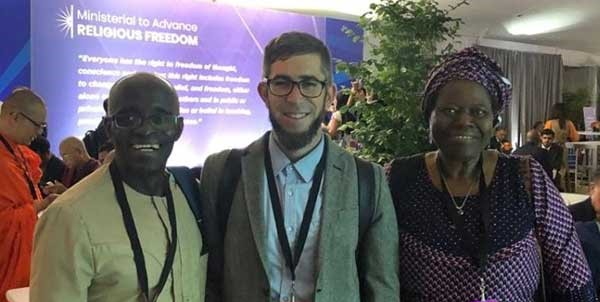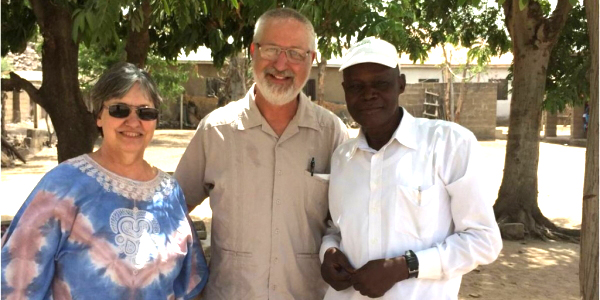
By Nathan Hosler, director of the Office of Peacebuilding and Policy
The Office of Peacebuilding and Policy, a witness of the Church of the Brethren, represents, organizes, and educates as a part of the historic and living commitment to embodying Christ’s peace in the world. We do this as part of denominational staff in support of and in partnership with congregations and individuals. As participants in the broader body, we contributed to and are now living into the compelling vision. Though the process of Annual Conference consideration of the compelling vision has been postponed a year, we are reflecting on how our ministry fits within it. The vision statement reads,
Together, as the Church of the Brethren, we will passionately live and share the radical transformation and holistic peace of Jesus Christ through relationship-based neighborhood engagement. To move us forward, we will develop a culture of calling and equipping disciples who are innovative, adaptable, and fearless.
As with any vision statement, we are challenged and invited to explore how the Office of Peacebuilding and Policy is already living this but also how we may need to modify our work. For example, there is sometimes tension between radical transformation and holistic peace and our work. Our work typically is slow, building over long periods, and growing with smaller steps. This often includes efforts to simply limit harm. An example of this is our work to fulfill the 2013 Annual Conference resolution on drone warfare. Through the faith-based working group we helped start, we have worked to reduce civilian casualties and to have these deaths accounted for and documented. These aims feel quite far from the transformation and holistic peace to which we aspire. They may feel like merely tinkering with (rather than transforming) violence; however, our office helped adopt a statement that is significant. This was one of the first official statements from a church raising these concerns.
This statement and these years of work are part of the broader ecumenical and interfaith community. These relationships and partnerships across church and religious lines are a form of the relationship-based neighborhood engagement called for in the compelling vision. As such, our work is both in regard to calling and equipping disciples within the Church of the Brethren and in service to the broader church. It also bears witness to the peace of Christ in the face of our nation’s tendency toward war and is part of efforts to support peacemaking globally.
Whether we are working with Intercultural Ministries to address racism, Brethren Disaster Ministries to address the pandemic, or the National Council of Churches, or preaching at a local congregation, we aim to equip (and be equipped) as disciples who are innovative, adaptable, and fearless for the glory of God and for our neighbor’s good. Together, we embody the peace of Christ in the world.
Learn more about the Office Peacebuilding and Policy of the Church of the Brethren at www.brethren.org/peacebuilding or support its ministry today at www.brethren.org/giveopp .
(Read this issue of eBrethren.)
(Read this issue of eBrethren.)


